1. Year to Date TSLA -56% vs. S&P -19%
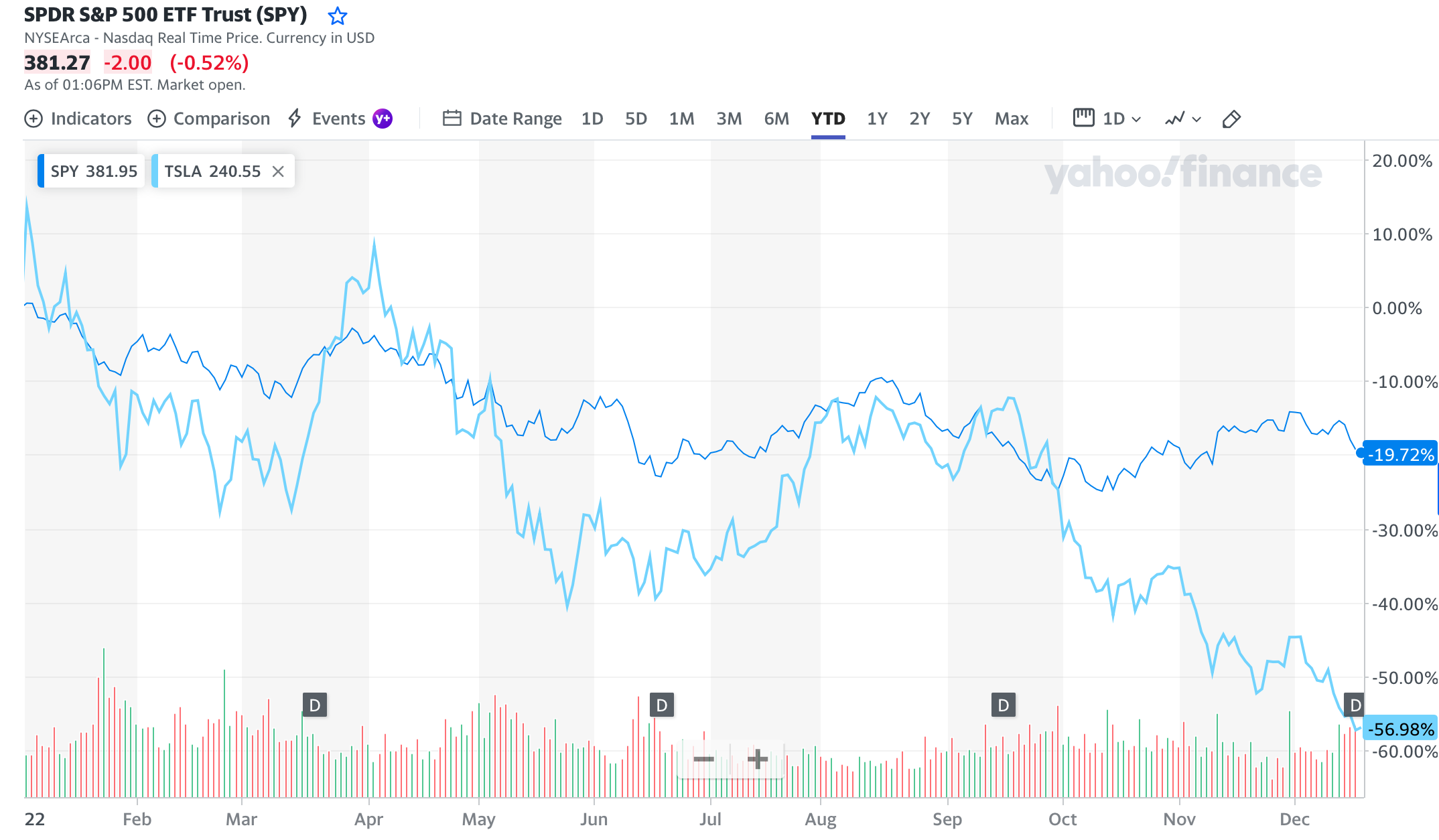
2. Vanguard Energy ETF Broke 200 Day Twice Since Summer Only to Make More New Highs

3. S&P 500 Dividend Ratio Well Below Historical Mean
The S&P 500’s dividend ratio—the percentage of earnings that gets paid out in dividends—is around 30%, far below its long-term average of 50%, according to BofA Global Research.
https://www.barrons.com/
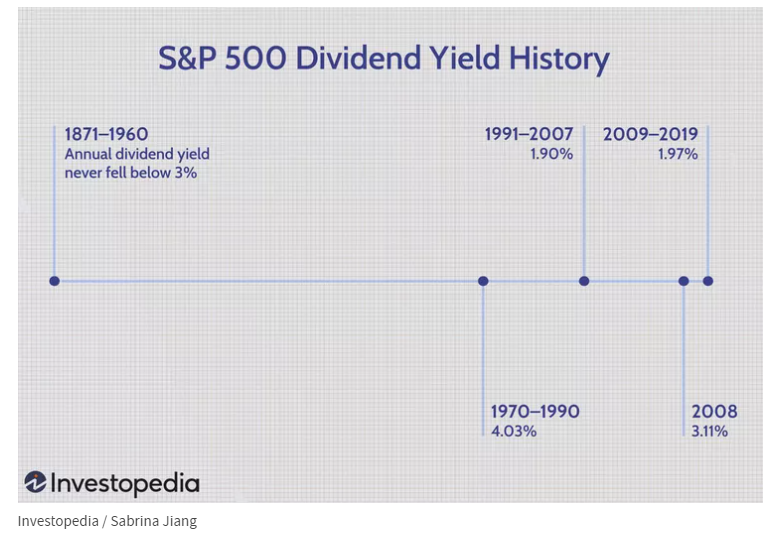
4. Apple Breaks Thru Lows Going Back to July
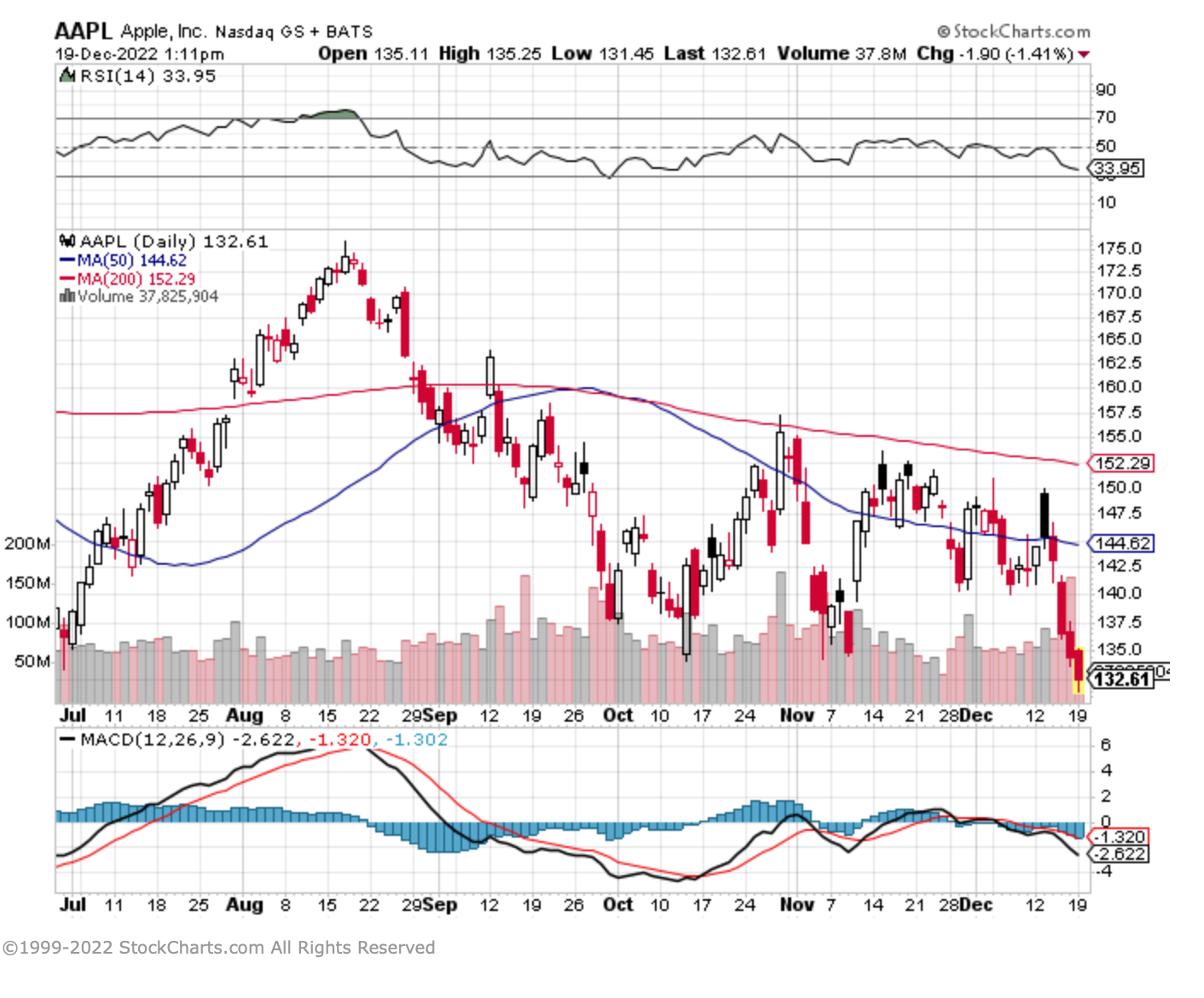
5. History of Purchasing Bonds Prior to Last Rate Hike.
Capital Group

https://www.capitalgroup.com/advisor/insights/articles/2023-bond-market-outlook.html?sfid=1988901890&cid=80900038&et_cid=80900038&cgsrc=SFMC&alias=A-btn-LP-2-CISynCTA
6. Investors are Net Overweight Bonds First Time Since April 2009
AndreasStenoLarsen
@AndreasSteno
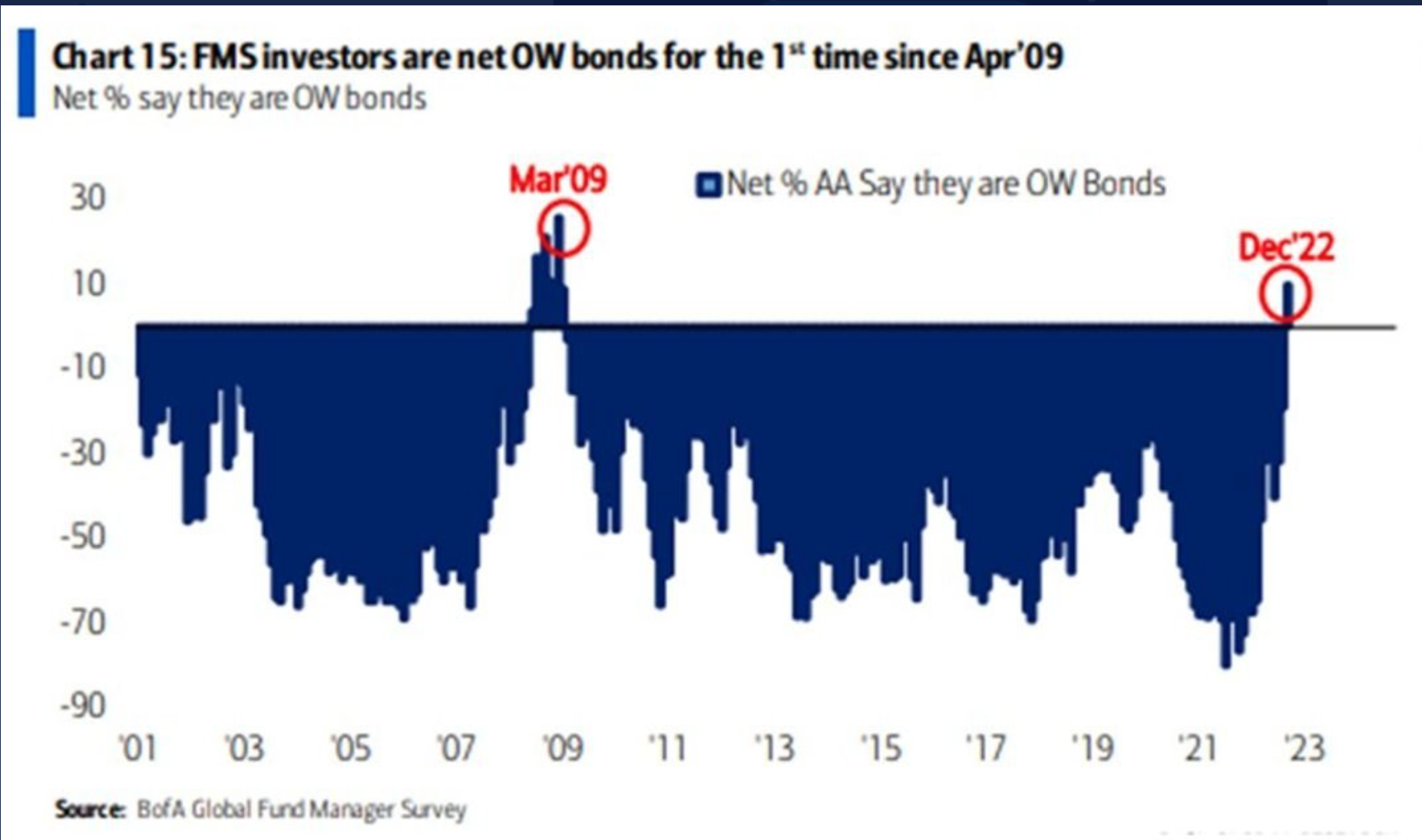
https://twitter.com/AndreasSteno
7. Interest Rates Impact on Corporate Earnings
Advisor Perspectives Larry Swedroe Rising interest rates negatively impact corporate profits. Rising interest rates increase the cost of debt. The chart below demonstrates the positive impact on corporate profits of the four-decade long secular decline in interest rates. The dramatic rise in rates since the Fed began tightening policy will have the opposite effect.

https://www.advisorperspectives.com/articles/2022/12/19/fourth-quarter-2022-economic-review-and-outlook
8. IPO Market Raises Least Amount of Money Since 1990
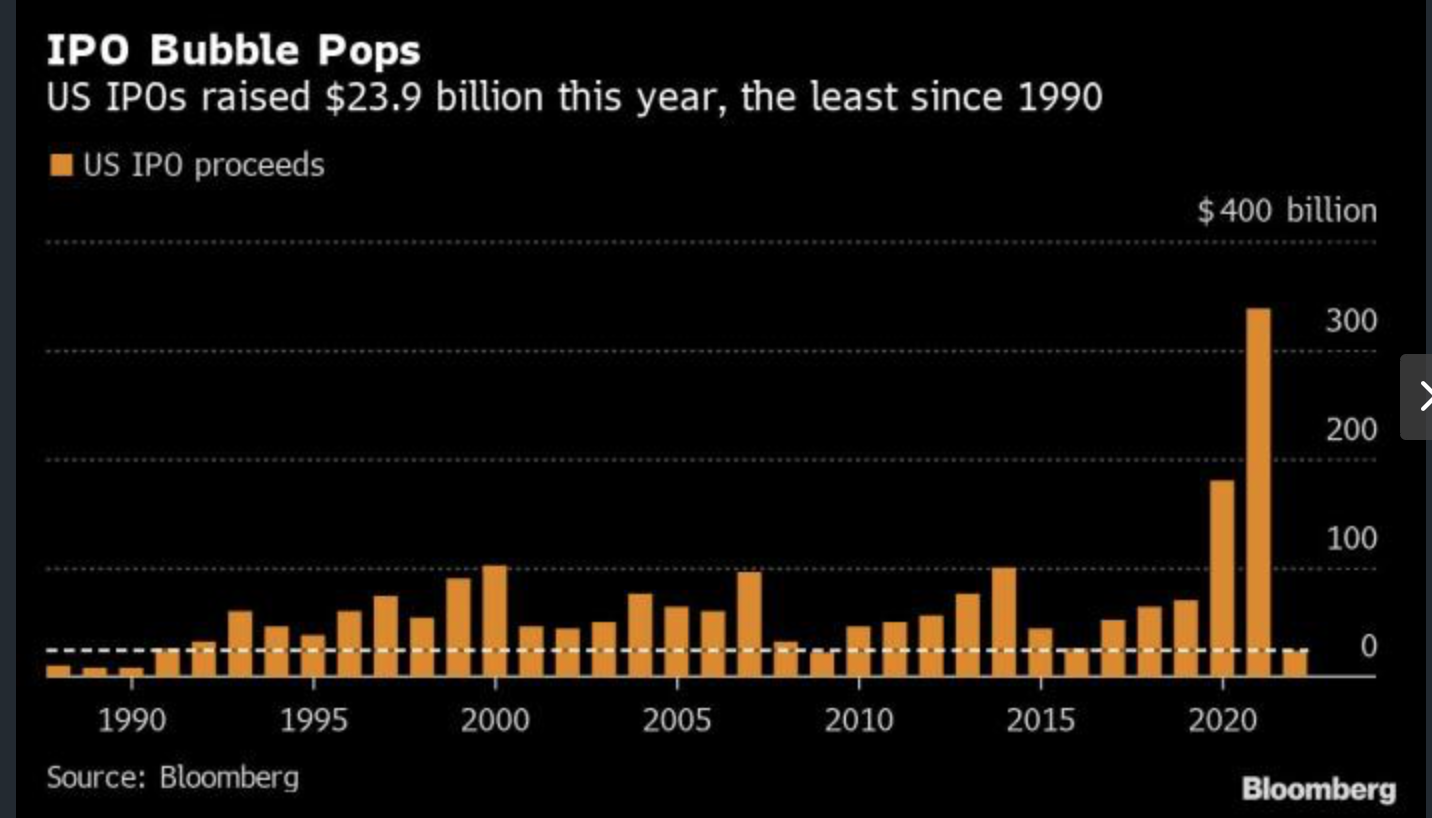
https://finance.yahoo.com/news/ipo-slump-bankers-wary-2023-100000599.html
9. Disney Makes New Lows $200 to $86
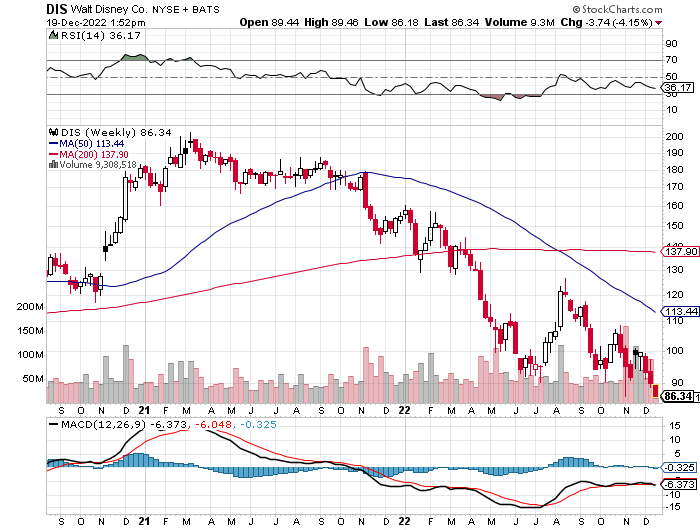
10. Mark Cuban has 4 rules for making money—No. 4 is: ‘Know your s–t better than anyone else in the room’
Mark Cuban says anyone can become a millionaire by following his four rules of success.
The 64-year-old investor, serial entrepreneur and owner of the NBA’s Dallas Mavericks says the strategy helped him accumulate his own wealth — a net worth of $4.6 billion, according to Forbes. He recently broke down his rules for GQ, noting that while they’re meant to help you earn cash, they’re really about being able to “control your own destiny.”
“If you want to be a millionaire, you can do it, but there’s a couple things you have to be able to accomplish,” Cuban said.
His first rule: “Find something you can be good at. Then, be great at it.”
To do that, you’ll probably need to study your subject relentlessly. Counterintuitively, you may also need to “cross-train” your brain by studying other topics of interest, too. Research published by the Association for Psychological Science last year noted that what separates Nobel Prize winners from national-level winners is often multidisciplinary experience.
Similarly, the research found that competitive athletes had “greater sustainability of long-term excellence” if they played more than one sport as a child. Those athletes didn’t immediately excel at their preferred sport, but showed a more consistent route to eventual mastery over time, the authors added.
Cuban’s second rule is “know how to sell.” His own sales career started early: At age 12, he sold trash bags door-to-door to earn money for new sneakers, he said.
The billionaire has previously given out advice on how to succeed at sales — by showing people how you can help them in the first couple of seconds of your pitch.
“Selling isn’t about convincing, it’s about helping,” Cuban told the School of Hard Knocks in a TikTok. “When you understand what people need and want, you put yourself in a position to help them,” he said. “Then you make good things happen, close deals and that’s how you create companies.”
Sales may not be a bad place for aspiring millionaires to start. In 2017, 15% of CEOs from the top 100 Fortune 500 companies started in sales, according to a survey from leadership consulting firm Heidrick & Struggles.
The third rule: “Be curious and always learning,” Cuban said.
Having a “lifetime learning mentality” correlates with both objective and subjective success — from the number of promotions you get to how happy you are in your job — according to a 2020 study from University of Waterloo finance and education researchers.
Lifelong learners can even save their employers money in the long run, study co-author Judene Pretti told UWaterloo’s “Alumni Know” podcast in April.
“As technology continues to move at the rapid pace it is, employers need their employees to … undertake learning and development to stay on top of what the latest technologies are,” Pretti said. “It isn’t a matter of needing to replace workforce. Instead, develop and grow the existing workforce.”
Lastly, Cuban’s fourth rule is his longest — and perhaps his most important, especially for aspiring entrepreneurs.
“When you walk into a room, you [need to] know your s–t better than anyone else in the room,” he said. “That’s when it’s time to start a company. Then, you can start to control your own destiny.”
Knowledge, of course, doesn’t guarantee success. Before Cuban started his first company, he quit or was fired from three consecutive jobs and slept on the floor of a three-bedroom apartment he shared with five roommates, he wrote in Forbes in 2013.
He touched on a similar subject in his 2011 book “How to Win at the Sport of Business,” writing that it “doesn’t matter how many times” you fail. “You only have to be right once” to be “set for life,” he added.
That lesson may be why Cuban seems confident enough in his four rules to stake his own livelihood on it. Even if he lost everything, he’d build himself back into a millionaire again, he told NPR’s “How I Built This” podcast in 2016.
“I would get a job as a bartender at night, and a sales job during the day, and I would start working,” Cuban said. “To be a billionaire, you have got get lucky … [but] could I become a multi-millionaire again? I have no doubt.”
https://www.cnbc.com/2022/12/